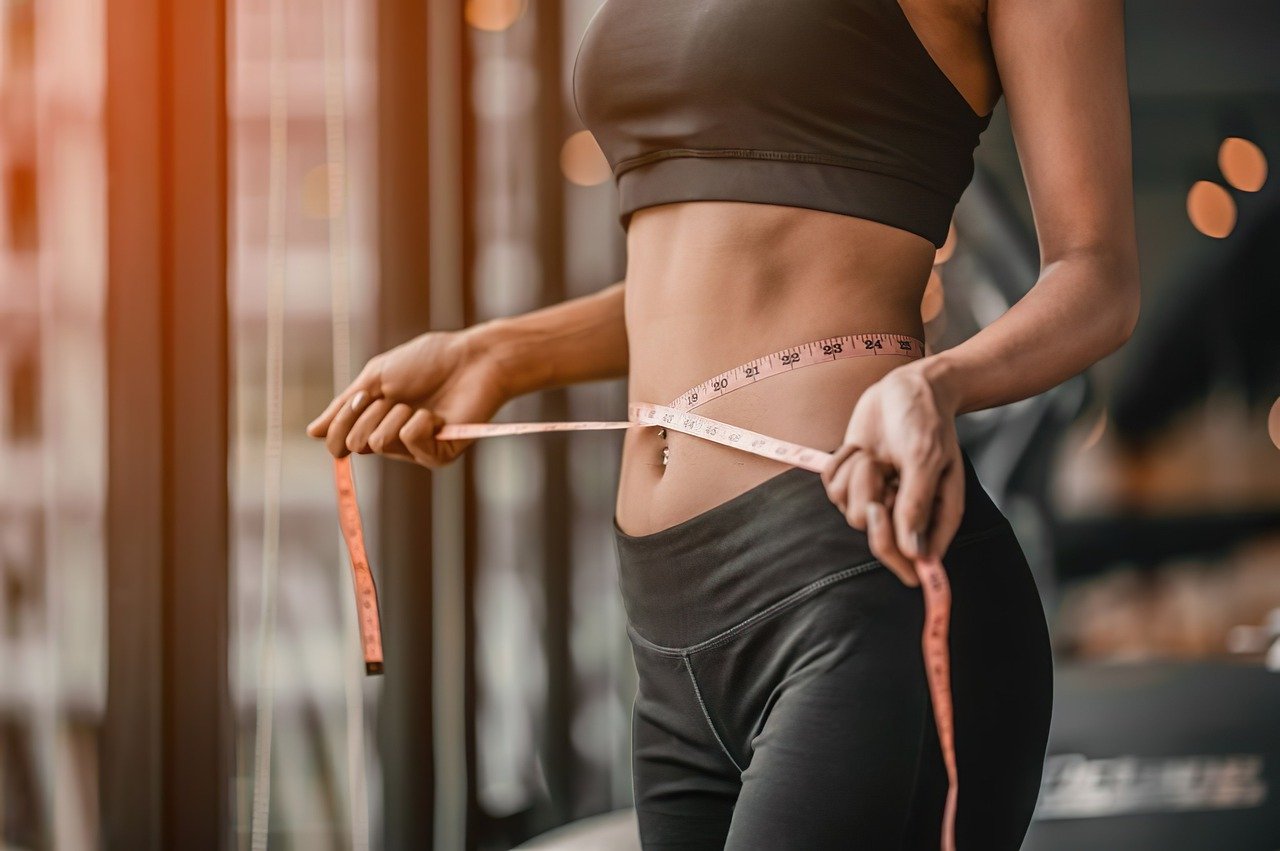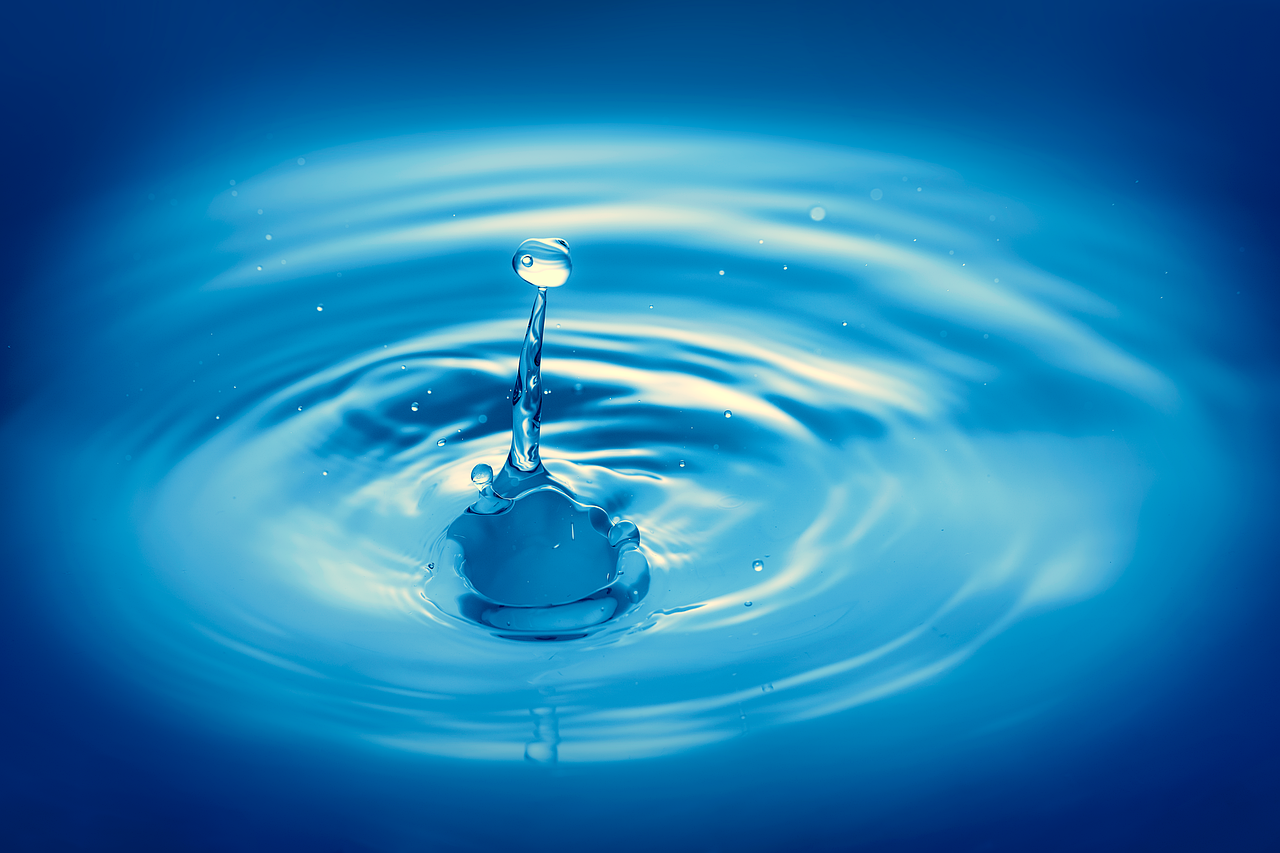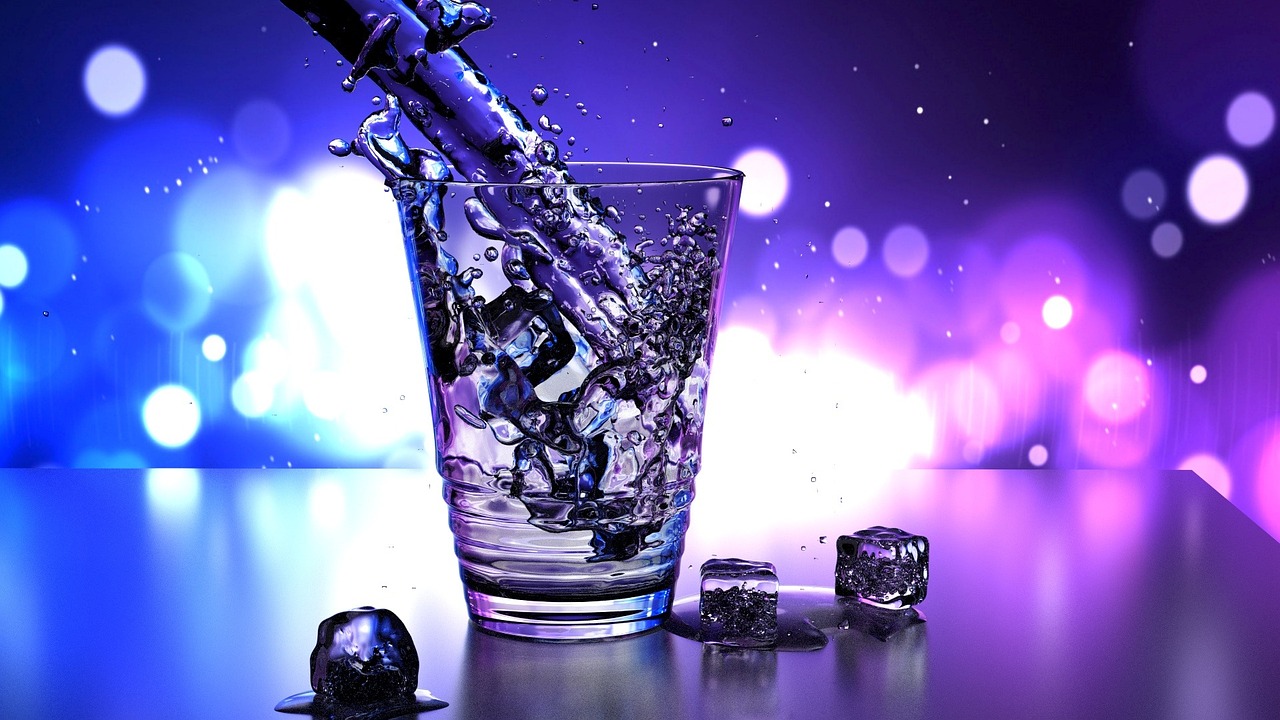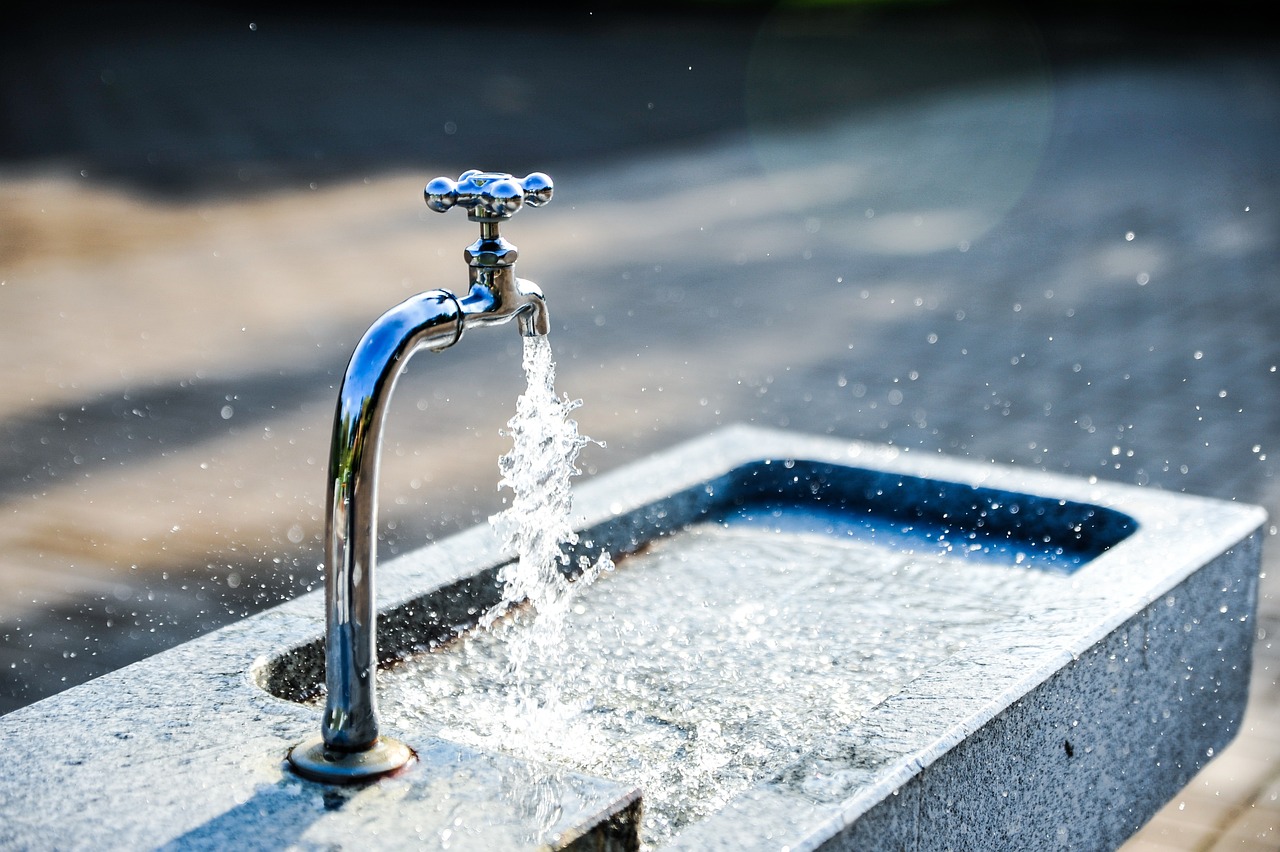This article explores the relationship between water consumption and weight loss, examining how hydration can impact fat loss and overall health, along with practical tips for incorporating water into your weight loss journey.
Understanding the Role of Water in Weight Loss
Water is not just a thirst quencher; it plays a vital role in several bodily functions, including metabolism. When the body is adequately hydrated, it can enhance fat burning and support weight loss efforts. Studies have shown that drinking sufficient water can increase the number of calories burned, especially when combined with exercise. Moreover, water helps in the digestion process, allowing nutrients to be absorbed efficiently, which is crucial for anyone looking to lose weight.
How Much Water Should You Drink Daily?
Determining the right amount of water for weight loss varies by individual. General guidelines suggest aiming for at least 8-10 cups (2-2.5 liters) of water a day, but factors such as activity level, climate, and body weight can influence hydration needs. For instance, individuals who exercise regularly or live in hot climates may require more fluids to stay adequately hydrated.
Factors Affecting Water Intake
- Age: As we age, our body’s water requirements may change, necessitating adjustments to our hydration habits.
- Weight: Heavier individuals may need more water to support their metabolic processes effectively.
- Exercise Intensity: Higher intensity workouts increase fluid loss through sweat, requiring additional water intake.
Hydration and Metabolism
Hydration plays a crucial role in metabolic processes. Drinking water can boost metabolism by up to 30% for about 30-40 minutes, enhancing fat oxidation during weight loss. This metabolic boost can be particularly beneficial when paired with a healthy diet and regular exercise.
Can Drinking Water Help You Lose Weight Fast?
While water alone won’t cause rapid weight loss, it can be a powerful tool in your weight loss arsenal. For instance, drinking water before meals has been shown to reduce appetite and calorie intake. A study found that participants who drank water before meals consumed fewer calories overall, leading to significant weight loss over time.
Replacing High-Calorie Beverages
Substituting sugary drinks with water can significantly lower calorie consumption. High-calorie beverages can contribute to weight gain, while water provides hydration without added calories. This simple switch can make a noticeable difference in your weight loss journey.
Best Practices for Staying Hydrated
Adopting effective hydration strategies can enhance weight loss efforts. Here are some practical tips:
- Infusing Water for Flavor: Many find plain water unappealing. Infusing water with fruits, herbs, or spices can make hydration more enjoyable.
- Using Apps to Track Water Intake: Technology can aid in maintaining hydration goals. Various apps are available for tracking daily water consumption, ensuring you meet your hydration needs.
Potential Risks of Overhydration
While hydration is crucial, excessive water intake can lead to health issues such as water intoxication, which can disturb electrolyte balance. It’s essential to maintain a healthy balance and recognize the signs of overhydration, such as headaches, nausea, and confusion.
Recognizing Signs of Overhydration
Understanding the signs of overhydration is essential for maintaining health. Common symptoms include:
- Headaches
- Nausea and vomiting
- Confusion or disorientation
Consulting Healthcare Professionals
Before making significant changes to your hydration habits, consulting with a healthcare professional is advisable. They can provide personalized advice based on your individual health needs, ensuring you stay on track with your weight loss journey.

Understanding the Role of Water in Weight Loss
Water plays a critical role in maintaining overall health and is particularly significant when it comes to weight loss. Many people underestimate the importance of hydration in their weight management journey. This section delves into how adequate hydration can enhance fat burning, support metabolic processes, and ultimately aid in achieving weight loss goals.
First and foremost, water is essential for metabolism. When the body is well-hydrated, it functions optimally, allowing for efficient energy production and nutrient absorption. Studies have shown that even mild dehydration can slow down metabolic processes, making it harder to burn fat. This is because water is necessary for the digestion and absorption of food, as well as for transporting nutrients throughout the body.
Furthermore, drinking water can boost fat oxidation, the process by which the body breaks down fat for energy. Research indicates that drinking approximately 500 ml of water can increase metabolic rate by up to 30% for about 30-40 minutes. This increase in metabolism can help facilitate weight loss, especially when combined with a balanced diet and regular exercise.
Hydration also plays a role in appetite regulation. Many individuals often confuse thirst with hunger, leading to unnecessary calorie consumption. By drinking water before meals, you can create a feeling of fullness, which can help reduce overall calorie intake. In fact, some studies suggest that consuming water before meals can lead to a decrease in calorie consumption, making it a simple yet effective strategy for weight management.
Additionally, replacing high-calorie beverages with water can significantly reduce daily calorie intake. Sugary drinks, including sodas and juices, are often loaded with empty calories that contribute to weight gain. By substituting these beverages with water, individuals can lower their caloric intake without sacrificing satisfaction.
It is also important to note that while drinking water is beneficial, it is not a standalone solution for weight loss. A holistic approach that includes a balanced diet, regular physical activity, and proper hydration is essential for achieving sustainable results. Incorporating water-rich foods into your diet, such as fruits and vegetables, can further enhance hydration and provide essential nutrients.
In summary, understanding the role of water in weight loss is crucial for anyone looking to shed pounds effectively. By prioritizing hydration, individuals can enhance their metabolic rate, regulate appetite, and reduce calorie consumption, all of which contribute to successful weight loss efforts. Remember, staying hydrated is not just about drinking water; it’s about making informed choices that support your health and wellness journey.

How Much Water Should You Drink Daily?
When it comes to weight loss, hydration plays a pivotal role. However, determining the right amount of water to drink daily varies significantly from person to person. Several factors come into play, including activity level, climate, and individual health needs. In this section, we will explore general guidelines for hydration and the various elements that influence how much water you should consume.
The commonly recommended daily water intake is around 8-10 cups (about 2-2.5 liters) for most adults. However, this is merely a baseline, and individual needs can differ greatly. For those engaged in regular physical activity or living in hot climates, the requirement may increase significantly. A good rule of thumb is to drink enough water to maintain clear or light-colored urine, indicating adequate hydration.
- Activity Level: Individuals who exercise regularly or engage in strenuous activities will need more water to replace fluids lost through sweat. Aim to drink an additional 1-2 cups of water for every hour of intense exercise.
- Climate: Hot and humid weather increases perspiration, necessitating greater water intake. In colder climates, dry air can also lead to dehydration, so it’s important to stay vigilant about hydration regardless of the temperature.
- Body Weight: A person’s weight can also dictate their hydration needs. A common recommendation is to drink between half an ounce to an ounce of water for each pound of body weight. For instance, a 150-pound person should aim for 75-150 ounces of water daily.
- Age: As we age, our bodies may require different amounts of water. Older adults may have a diminished sense of thirst and should be proactive in ensuring they drink enough fluids.
Staying adequately hydrated can significantly enhance your weight loss efforts. Water aids in metabolism and can help your body efficiently burn fat. Moreover, drinking water before meals can lead to reduced calorie intake, as it helps control appetite. Research indicates that individuals who drink water before meals may consume fewer calories overall, contributing to weight loss.
To ensure you are meeting your hydration needs, consider using technology. Numerous apps are available that can help you track your daily water intake. These tools can serve as reminders and motivate you to stay on top of your hydration goals.
If plain water feels unappealing, try infusing it with fruits, herbs, or vegetables. Options like lemon, cucumber, or mint not only add flavor but also provide additional nutrients, making hydration more enjoyable.
In conclusion, while general guidelines exist for daily water intake, individual needs can vary greatly based on several factors. Understanding your body’s unique requirements is essential for effective hydration and weight loss. By paying attention to your activity level, climate, and personal health, you can determine the right amount of water to support your weight loss journey.
Factors Affecting Water Intake
When it comes to hydration, understanding the is vital for maintaining optimal health and supporting weight loss efforts. Each individual’s hydration needs can significantly vary based on several key elements, which we will explore in detail below.
- Age: As we grow older, our body’s ability to conserve water diminishes. Older adults may require more attention to hydration, as the sensation of thirst can decrease with age. This makes it essential to consciously drink water, even if one does not feel thirsty.
- Weight: A person’s body weight plays a significant role in determining their daily water requirements. Generally, a common guideline suggests that individuals should aim for about half an ounce to an ounce of water for each pound they weigh. Therefore, a person weighing 150 pounds should aim for approximately 75 to 150 ounces of water daily, depending on their activity level.
- Exercise Intensity: Physical activity increases the body’s need for water. During exercise, especially in high-intensity workouts, the body loses water through sweat. It’s crucial to replenish lost fluids to avoid dehydration, which can hinder performance and recovery.
- Climate: The environment plays a critical role in hydration needs. Hot and humid weather can lead to increased perspiration, necessitating a higher water intake. Conversely, in colder climates, people may not realize they are losing fluids, making it easy to become dehydrated without proper monitoring.
- Diet: The foods we consume also impact hydration levels. Foods with high water content, such as fruits and vegetables, can contribute to overall fluid intake. Conversely, high-sodium or high-sugar foods can increase the need for water, as the body requires more fluids to process these substances.
- Health Conditions: Certain health conditions and medications can affect hydration needs. For instance, illnesses that cause fever, vomiting, or diarrhea can lead to increased fluid loss. Those with chronic conditions such as kidney disease may also have specific hydration requirements that need to be closely monitored.
In summary, several factors influence how much water a person should consume daily. By considering age, weight, exercise intensity, climate, diet, and health conditions, individuals can better tailor their hydration strategies to meet their unique needs. Staying adequately hydrated is not just about drinking water; it involves understanding the body’s signals and adjusting intake accordingly for optimal health and wellness.
Age and Hydration Needs
As we progress through life, our bodies undergo numerous changes, including how we manage hydration. Age can significantly influence our hydration needs, making it essential to adapt our water intake accordingly. This section delves into the intricate relationship between aging and hydration, highlighting why older adults must be vigilant about their water consumption.
One of the primary reasons for altered hydration needs in older adults is the decrease in total body water. As we age, our body composition shifts, resulting in a lower percentage of water in our bodies. This reduction can lead to a higher risk of dehydration, as older adults may not feel thirsty even when their bodies require fluids. Therefore, it is crucial to recognize the signs of dehydration, which can include fatigue, confusion, and dry skin, among others.
Moreover, aging affects the kidneys, which play a vital role in fluid balance. With age, the kidneys become less efficient at conserving water, meaning that older adults may need to drink more fluids to maintain optimal hydration levels. This inefficiency can also lead to an increased risk of urinary tract infections and other complications, making proper hydration even more critical.
Another factor to consider is the medications that many older adults take. Certain medications can have diuretic effects, leading to increased fluid loss. It is essential for individuals to consult with healthcare providers to understand how their medications might affect hydration and to adjust their water intake accordingly.
Additionally, physical activity tends to decrease with age, which can also influence hydration needs. While older adults may not engage in intense physical activities, they still require adequate hydration to support daily functions and overall health. Light exercises, such as walking or stretching, can enhance circulation and promote better hydration, making it vital to drink water before, during, and after these activities.
To address these changes effectively, older adults should consider implementing some practical strategies to ensure they stay hydrated:
- Set reminders: Use alarms or smartphone apps to remind you to drink water throughout the day.
- Flavor your water: Adding slices of fruits or herbs can make drinking water more enjoyable.
- Keep water accessible: Always have a water bottle nearby to encourage regular sipping.
- Monitor urine color: A light yellow color typically indicates proper hydration, while dark urine may signal dehydration.
In summary, as we age, our hydration needs change due to physiological shifts, medication effects, and lifestyle factors. Understanding these changes and adopting proactive hydration strategies is crucial for maintaining health and well-being in older adults. By prioritizing water intake, older individuals can enhance their quality of life and reduce the risk of dehydration-related issues.
Weight and Water Consumption
Understanding the relationship between weight and water consumption is crucial for maintaining optimal health. A person’s weight can significantly influence their hydration needs, as water plays a vital role in various bodily functions. This section delves into how body weight correlates with recommended daily water intake, providing insights into achieving proper hydration for overall wellness.
The general guideline for daily water intake is often cited as 8 cups (or about 2 liters), but this can vary significantly based on individual factors. One of the most important factors is body weight. The more a person weighs, the more water they typically need to maintain hydration. A common recommendation is to consume about 30-35 milliliters of water for every kilogram of body weight. For example, a person weighing 70 kilograms should aim for approximately 2.1 to 2.5 liters of water daily.
| Body Weight (kg) | Recommended Water Intake (liters) |
|---|---|
| 50 | 1.5 – 1.75 |
| 70 | 2.1 – 2.5 |
| 90 | 2.7 – 3.15 |
In addition to weight, several other factors can affect hydration needs:
- Activity Level: Individuals who exercise regularly require more water to compensate for fluid loss through sweat.
- Climate: Hot or humid weather can increase water needs due to higher perspiration rates.
- Diet: High-protein or high-sodium diets may necessitate increased water intake to help the kidneys process these nutrients.
It’s also essential to consider that as individuals age, their hydration needs may change. Older adults may have a diminished sense of thirst, making it crucial to monitor water intake proactively. Furthermore, certain health conditions can influence hydration needs, such as diabetes or kidney disease, necessitating tailored hydration strategies.
Maintaining proper hydration is not just about drinking water; it also involves consuming foods with high water content. Fruits and vegetables, such as cucumbers, watermelon, and oranges, can contribute significantly to daily fluid intake. Incorporating these foods into your diet can enhance hydration levels while providing essential nutrients.
In conclusion, understanding the connection between body weight and hydration needs is vital for optimal health. By recognizing how weight influences water intake and considering other factors such as activity level and climate, individuals can make informed decisions about their hydration strategies. Staying adequately hydrated supports not only weight management but also overall bodily functions, enhancing energy levels and promoting better health.
Hydration and Metabolism
Hydration is not merely a matter of quenching thirst; it plays a vital role in our body’s metabolic processes. When it comes to weight loss, understanding the connection between water intake and metabolism can be a game-changer. In this section, we will delve into how drinking water can significantly enhance metabolism and facilitate fat oxidation, making it an essential component of any weight loss strategy.
First and foremost, metabolism refers to the biochemical processes that convert food into energy. This process is crucial for maintaining bodily functions, and hydration is a key player in optimizing these metabolic pathways. Studies have shown that even mild dehydration can slow down metabolism, which can hinder weight loss efforts. Therefore, staying adequately hydrated is fundamental for those looking to shed pounds.
One of the primary ways that water boosts metabolism is through its effect on thermogenesis, the process by which the body generates heat. When you consume water, especially cold water, your body expends energy to warm it to body temperature. This increase in energy expenditure can lead to a slight boost in metabolic rate. Research indicates that drinking about 500 ml of water can increase metabolic rate by approximately 30% for about 30-40 minutes. This effect can be particularly beneficial when incorporated into a regular routine.
Moreover, water plays a crucial role in fat oxidation. For the body to effectively burn fat, it requires adequate hydration. Water helps transport nutrients and oxygen to cells, which is essential for fat metabolism. When the body is well-hydrated, it can efficiently break down fat stores and convert them into energy. Conversely, dehydration can impair this process, leading to reduced fat burning and, consequently, slower weight loss.
In addition to enhancing metabolism, drinking water can also help control appetite. Research suggests that individuals who drink water before meals tend to consume fewer calories overall. This simple strategy can lead to significant weight loss over time. By replacing high-calorie beverages with water, you not only reduce calorie intake but also promote a healthier lifestyle.
It’s important to note that while water is a powerful tool for weight loss, it should be combined with a balanced diet and regular exercise for optimal results. Hydration alone will not lead to rapid weight loss; however, it can complement a well-rounded weight loss regimen effectively.
In summary, hydration is a fundamental aspect of metabolism that directly influences weight loss. By drinking enough water, you can boost your metabolic rate, enhance fat oxidation, and control your appetite. These benefits highlight the importance of incorporating adequate hydration into your daily routine, especially for those on a weight loss journey.

Can Drinking Water Help You Lose Weight Fast?
When it comes to weight loss, many people seek quick solutions, often overlooking the simple yet effective role of water. While it is true that drinking water alone won’t lead to rapid weight loss, it can significantly enhance your weight loss efforts when combined with a balanced diet and regular exercise. This article delves into how proper hydration can serve as a vital tool in your weight loss journey.
One of the primary ways water aids in weight loss is by promoting satiety. Research indicates that drinking water before meals can help reduce appetite, leading to lower calorie intake. A study published in the journal Obesity found that participants who consumed water prior to eating consumed fewer calories overall. This simple practice can be an effective strategy for those looking to control their portions and avoid overeating.
Moreover, replacing high-calorie beverages with water can have a profound impact on your overall caloric intake. Sugary drinks, including sodas and fruit juices, can add a significant number of calories to your diet without providing any nutritional benefits. By swapping these drinks for water, you not only reduce your calorie consumption but also improve your hydration status, which is essential for optimal bodily functions.
In addition to appetite control and calorie reduction, hydration plays a crucial role in metabolism. Studies have shown that drinking water can temporarily boost your metabolic rate. A study published in the Journal of Clinical Endocrinology & Metabolism found that drinking about 500 ml of water increased metabolic rate by approximately 30% for about 30-40 minutes. This boost in metabolism can enhance fat oxidation, making it easier to shed those extra pounds.
It is also important to consider how much water you should be drinking daily. The general recommendation is to aim for at least 8-10 cups (2-2.5 liters) of water per day, but individual needs may vary based on factors such as activity level, climate, and overall health. For instance, if you are exercising or living in a hot climate, your hydration needs may be higher. Keeping track of your daily water intake can help ensure that you are meeting your hydration needs effectively.
To make drinking water more enjoyable, consider infusing it with fruits or herbs. Adding slices of lemon, cucumber, or fresh mint can enhance the flavor without adding calories. This not only makes hydration more appealing but also encourages you to drink more throughout the day.
While the benefits of drinking water for weight loss are clear, it is essential to maintain a balance. Overhydration, or drinking excessive amounts of water, can lead to health issues such as hyponatremia, where sodium levels in the blood become dangerously low. Symptoms of overhydration include headaches, nausea, and confusion. Therefore, it is crucial to listen to your body and consult with a healthcare professional if you have any concerns about your hydration practices.
In summary, while water alone is not a magic solution for rapid weight loss, it can be a powerful ally in your weight loss journey. By enhancing satiety, replacing high-calorie beverages, and boosting metabolism, proper hydration can significantly contribute to your overall success. Remember to stay mindful of your hydration needs and incorporate water into your daily routine for optimal results.
Water Before Meals
In the quest for effective weight management, many individuals overlook a simple yet powerful strategy: drinking water before meals. This practice not only promotes hydration but also plays a significant role in controlling appetite and reducing overall calorie intake. Research has shown that consuming water prior to eating can lead to a decrease in hunger, which may help individuals make healthier food choices.
One notable study published in the journal Obesity found that participants who drank about 500 ml (approximately 17 ounces) of water 30 minutes before their meals consumed fewer calories during the meal itself. This reduction in calorie intake can be attributed to the feeling of fullness that water provides, allowing individuals to feel satisfied with smaller portions. The study concluded that incorporating this habit could be a practical approach for those looking to manage their weight effectively.
Moreover, drinking water before meals can also influence the body’s metabolic processes. When adequately hydrated, the body can function more efficiently, enhancing the digestion of food and promoting better nutrient absorption. This improved metabolic function can further support weight loss efforts, making it a dual benefit for those aiming to shed pounds.
Another aspect to consider is the type of beverages typically consumed with meals. Many individuals opt for high-calorie drinks such as soda, sweetened teas, or alcoholic beverages. By replacing these drinks with water, not only can one cut down on unnecessary calories, but they can also improve their overall health. Water is a zero-calorie option that hydrates the body without adding to caloric intake, making it an ideal choice for weight-conscious individuals.
In addition to its appetite-suppressing effects, drinking water before meals can also aid in mindful eating. When individuals take a moment to hydrate before diving into their food, it encourages them to slow down and pay attention to their hunger cues. This can lead to a more conscious approach to eating, allowing for better portion control and reducing the likelihood of overeating.
For those who find it challenging to remember to drink water before meals, setting reminders or incorporating it into a routine can be beneficial. Keeping a water bottle nearby or associating water intake with specific meal times can create a habit that becomes second nature over time. Additionally, infusing water with flavors such as lemon, cucumber, or mint can make it more appealing, encouraging increased consumption.
In conclusion, the practice of drinking water before meals is a simple yet effective strategy for weight management. By reducing appetite, enhancing metabolic function, and promoting mindful eating, this habit can significantly contribute to healthier eating patterns and overall well-being. As always, it is essential to listen to your body and adjust water intake based on individual needs and activity levels.
Replacing High-Calorie Beverages
In today’s health-conscious world, making informed beverage choices is essential for anyone looking to improve their diet and overall well-being. One of the most impactful changes you can make is with water. This simple substitution can lead to a significant reduction in calorie consumption, aiding in weight loss and enhancing overall health.
Many people are unaware of the hidden calories found in sugary drinks such as sodas, energy drinks, and even some fruit juices. A single can of soda can contain upwards of 150 calories, and when consumed regularly, these calories can add up quickly. By switching to water, you not only eliminate these excess calories but also benefit from hydration that supports various bodily functions.
| Beverage | Calories per Serving |
|---|---|
| Soda (12 oz) | 150 |
| Fruit Juice (8 oz) | 110 |
| Energy Drink (8 oz) | 100 |
| Water (0 oz) | 0 |
Substituting these high-calorie drinks with water can lead to a significant decrease in daily caloric intake. Research shows that individuals who replace sugary drinks with water tend to experience greater weight loss compared to those who do not. This is because water not only has zero calories but also helps to boost metabolism and promote fat burning.
Additionally, drinking water can help control hunger. Often, our bodies can confuse thirst for hunger, leading us to consume unnecessary calories. By staying adequately hydrated, you can reduce the likelihood of snacking out of thirst rather than genuine hunger. Studies have demonstrated that drinking water before meals can lead to a decrease in overall calorie consumption, making it an effective strategy for weight management.
Moreover, the health benefits of drinking water extend beyond weight loss. Proper hydration supports digestion, regulates body temperature, and maintains healthy skin. It is essential for nutrient absorption and can even improve physical performance during exercise. By prioritizing water over sugary beverages, you are not only cutting calories but also enhancing your body’s ability to function optimally.
Incorporating water into your daily routine can be simple and enjoyable. Consider carrying a reusable water bottle to remind yourself to drink throughout the day. You can also infuse your water with fresh fruits or herbs to add flavor without the added calories. This not only makes hydration more appealing but also encourages you to drink more.
In conclusion, replacing high-calorie beverages with water is a powerful strategy for anyone looking to lose weight and improve their health. By making this simple change, you can significantly lower your calorie intake while enjoying the numerous benefits that proper hydration brings. Consider making water your beverage of choice, and watch as it transforms your weight loss journey and overall well-being.

Best Practices for Staying Hydrated
Staying hydrated is a crucial aspect of any weight loss journey. Effective hydration strategies not only support overall health but also enhance your weight loss efforts significantly. Here, we delve into practical tips that can help you increase your daily water intake sustainably.
First and foremost, set a daily water goal. A common recommendation is to aim for at least 8-10 glasses of water a day, but this can vary based on individual needs. Factors such as activity level, climate, and body weight should be taken into account. Keeping a water bottle handy can serve as a constant reminder to drink throughout the day.
- Start Your Day with Water: Make it a habit to drink a glass of water first thing in the morning. This not only kick-starts your metabolism but also helps you stay hydrated from the get-go.
- Infuse Your Water: If plain water feels boring, try infusing it with fruits, vegetables, or herbs. Adding slices of lemon, cucumber, or a few mint leaves can make hydration much more enjoyable.
- Use a Tracking App: Leverage technology by using apps that remind you to drink water and track your intake. These tools can be particularly helpful in meeting your hydration goals.
- Replace Sugary Drinks: One of the easiest ways to increase your water consumption is to replace high-calorie beverages like soda and juice with water. This simple swap can lead to significant calorie savings.
- Drink Before Meals: Consuming water before meals can help reduce appetite and calorie intake. Studies suggest that drinking a glass of water 30 minutes before eating can lead to lower overall food consumption.
Another effective strategy is to create a routine. Incorporate water breaks into your daily schedule. For instance, drink a glass of water after every hour of work or after completing a task. This not only ensures regular intake but also helps in building a habit.
Additionally, consider the temperature of the water. Some people find it easier to drink cold water, while others prefer it at room temperature. Experimenting with different temperatures can make a difference in your willingness to drink more.
Lastly, always listen to your body. Thirst is a clear indicator that you need more fluids. However, also be aware of the signs of dehydration, such as dark urine, fatigue, and dizziness. Staying attuned to your body’s signals can help you maintain optimal hydration levels.
In summary, adopting these best practices for hydration can significantly enhance your weight loss efforts. By setting goals, tracking your intake, and making hydration enjoyable, you can create a sustainable routine that supports your health and weight management objectives.
Infusing Water for Flavor
Staying hydrated is essential for overall health, but many people find plain water to be bland and uninviting. To make hydration more enjoyable, consider infusing water with a variety of fruits, herbs, and even spices. This not only enhances the flavor but also adds a touch of creativity to your daily hydration routine.
Infusing water is a simple process that allows you to experiment with different combinations to find your favorite flavors. Here are some creative ideas to inspire your hydration journey:
- Citrus Delight: Combine slices of lemon, lime, and orange for a refreshing burst of flavor. Citrus fruits are rich in vitamin C and can help boost your immune system.
- Berry Bliss: Add a mix of strawberries, blueberries, and raspberries to your water. Berries are packed with antioxidants and lend a subtle sweetness without added sugars.
- Herbal Infusion: Fresh herbs like mint, basil, or rosemary can add a unique twist to your water. Mint is particularly refreshing and can aid digestion.
- Spicy Kick: For those who enjoy a bit of heat, try adding slices of ginger or jalapeño. Ginger not only adds flavor but also has anti-inflammatory properties.
- Melon Medley: Cubes of watermelon, cantaloupe, or honeydew can create a hydrating and sweet infusion that is perfect for hot days.
To create your infused water, simply follow these steps:
1. Choose your fruits, herbs, or spices.2. Wash them thoroughly to remove any pesticides or dirt.3. Slice or chop them as needed to release their flavors.4. Add the ingredients to a pitcher or water bottle.5. Fill with cold water and let it steep in the refrigerator for at least 1-2 hours. For stronger flavors, let it steep overnight.6. Enjoy your deliciously flavored water throughout the day!
Not only does infused water taste great, but it can also encourage you to drink more throughout the day. The vibrant colors and enticing aromas of your infused creations can make hydration feel like a treat rather than a chore.
Moreover, infusing water allows you to tailor your hydration to your personal preferences and nutritional needs. You can switch up the ingredients based on seasonal availability or your mood, ensuring that you always have a refreshing beverage at hand.
Incorporating infused water into your daily routine can also serve as a motivational tool for those looking to lose weight or maintain a healthy lifestyle. By replacing sugary drinks with flavored water, you can significantly reduce your calorie intake while still enjoying delicious flavors.
In conclusion, transforming plain water into a flavorful experience through infusions can enhance your hydration habits. By experimenting with different combinations of fruits, herbs, and spices, you can make drinking water a delightful part of your day. So grab your favorite ingredients and start infusing!
Using Apps to Track Water Intake
In today’s fast-paced world, staying hydrated can often take a backseat to our busy lives. However, technology has stepped in to help us maintain our hydration goals. has become an effective strategy for many individuals looking to enhance their health and well-being.
These apps offer a variety of features designed to make tracking your daily water consumption both easy and engaging. Most of them allow you to set personalized hydration goals based on your weight, activity level, and climate. For instance, WaterMinder and My Water are popular options that send reminders throughout the day to encourage you to drink more water. This ensures that you stay on track with your hydration goals, even during the busiest of days.
Another advantage of using hydration tracking apps is the ability to visualize your progress. Many apps provide graphs and statistics that show your daily intake over time. This visual representation can motivate you to meet your hydration goals, as it highlights your achievements and encourages you to improve. Additionally, some apps even allow you to log other beverages, giving you a comprehensive view of your overall fluid intake.
Furthermore, social features in some hydration apps enable users to connect with friends or family members. This social aspect can foster a sense of community and accountability, as users can share their progress, challenges, and tips for staying hydrated. Engaging with others can make the journey towards better hydration more enjoyable and less lonely.
Many hydration apps also provide educational resources about the importance of water in our daily lives. They often include articles, tips, and FAQs that explain how proper hydration can affect overall health, metabolism, and weight loss. For example, users can learn about the benefits of drinking water before meals and how it can help reduce appetite, leading to lower calorie intake.
In addition to tracking water intake, some advanced apps offer features like water reminders based on your individual schedule, weather conditions, or physical activity. For example, if you’ve just completed a workout, the app may prompt you to drink more water to replenish lost fluids. This level of personalization can make a significant difference in maintaining adequate hydration.
However, while these apps can be incredibly beneficial, it’s essential to remember that they should complement, not replace, your intuition about your body’s needs. Listening to your body and recognizing when you feel thirsty is still crucial. Hydration apps are tools to assist you, but they should not become a source of stress or anxiety about meeting arbitrary goals.
In conclusion, using apps to track water intake can significantly aid in maintaining hydration goals. They provide personalized reminders, visual progress tracking, and educational resources that make the journey to better hydration easier and more enjoyable. So, whether you’re aiming to lose weight, improve your health, or simply stay hydrated, consider incorporating a hydration tracking app into your daily routine. Embrace technology as a partner in your wellness journey and make hydration a priority in your life.
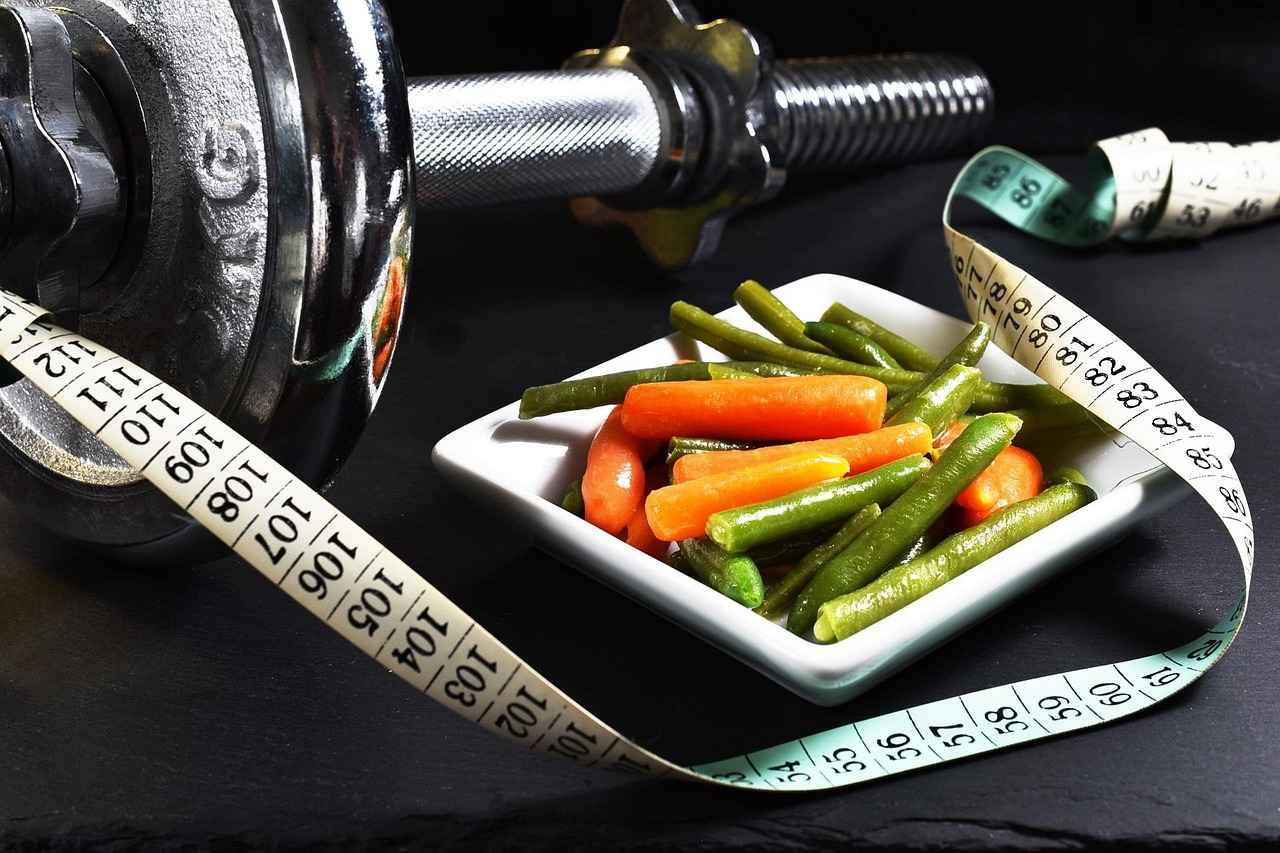
Potential Risks of Overhydration
While hydration is vital for maintaining optimal health, it is equally important to recognize that excessive water intake can lead to serious health complications. This section will delve into the symptoms and risks associated with overhydration, emphasizing the importance of finding a balance in your water consumption.
Overhydration, also known as water intoxication, occurs when the body takes in more water than it can eliminate. This imbalance can lead to a dilution of electrolytes, particularly sodium, which is crucial for nerve and muscle function. The condition can affect anyone, but it is particularly prevalent among athletes and individuals who engage in excessive physical activity without adequate electrolyte replenishment.
Recognizing the signs of overhydration is essential to prevent serious health issues. Common symptoms include:
- Nausea and vomiting
- Headaches
- Confusion or disorientation
- Swelling in hands, feet, or face
- Muscle cramps
- Severe fatigue
These symptoms can escalate quickly and may lead to more severe conditions such as hyponatremia, which is a dangerously low level of sodium in the blood.
Overhydration can pose several health risks, including:
- Hyponatremia: This condition can cause brain swelling, leading to seizures, coma, or even death in extreme cases.
- Kidney Damage: Excessive water can overwhelm the kidneys, leading to impaired function.
- Cardiovascular Issues: The heart may have to work harder to pump excess fluid, potentially leading to heart failure.
To avoid the risks associated with overhydration, it is crucial to maintain a balanced approach to fluid intake. Here are some practical tips:
- Listen to Your Body: Pay attention to your thirst cues and drink water accordingly.
- Monitor Your Intake: Keeping track of how much water you consume can help prevent excessive intake.
- Consider Electrolytes: Especially during intense exercise, consider replenishing electrolytes to maintain balance.
Before making significant changes to your hydration habits, it is advisable to consult with a healthcare professional. Personalized advice can help you determine the right amount of water for your individual health needs, ensuring you stay hydrated without risking overhydration.
In conclusion, while staying hydrated is essential for health and well-being, it is equally important to be aware of the potential risks of overhydration. By recognizing the symptoms and understanding the associated risks, you can maintain a healthy balance in your water consumption.
Recognizing Signs of Overhydration
Understanding the signs of overhydration is crucial for maintaining optimal health and well-being. While staying hydrated is essential, excessive water intake can lead to serious health complications. This section highlights the common symptoms of overhydration, enabling individuals to practice safe water consumption.
Overhydration, also known as water intoxication or hyperhydration, occurs when the body takes in more water than it can excrete. This imbalance can dilute electrolytes in the body, particularly sodium, leading to a condition called hyponatremia. Here are some key symptoms to watch for:
- Nausea and Vomiting: One of the first signs of overhydration is often gastrointestinal distress. Individuals may experience nausea and may even vomit as the body attempts to eliminate excess water.
- Headaches: Frequent headaches or migraines can occur due to swelling of brain cells caused by low sodium levels.
- Confusion or Disorientation: As electrolyte levels drop, cognitive functions can be affected, leading to confusion, disorientation, or even seizures in severe cases.
- Swelling: Overhydration can cause swelling in the extremities, particularly in the hands, feet, and face. This is due to excess fluid retention in the body’s tissues.
- Muscle Cramps: An imbalance in electrolytes can lead to muscle cramps and spasms, which may be mistaken for dehydration symptoms.
- Frequent Urination: While urination is a normal response to increased fluid intake, excessively frequent urination can indicate that the body is struggling to manage fluid levels.
It is important to note that the symptoms of overhydration can vary from person to person, and some individuals may experience more severe reactions than others. Factors such as activity level, climate, and overall health can influence how the body responds to excessive water intake.
To prevent overhydration, individuals should aim for a balanced approach to hydration. Listening to your body’s thirst signals and adjusting water intake based on physical activity and environmental conditions can help maintain healthy hydration levels. If you experience any of the symptoms mentioned above, it is essential to consult a healthcare professional for personalized advice and guidance.
In summary, while hydration is vital for health, being aware of the signs of overhydration is equally important. By understanding these symptoms and practicing safe water consumption, individuals can support their health without risking the adverse effects of excessive fluid intake.
Consulting Healthcare Professionals
When it comes to adjusting your hydration habits, particularly for weight loss, consulting with a healthcare professional is not just advisable; it is essential. Every individual’s health profile is unique, and understanding your specific needs is crucial for achieving optimal results.
Healthcare professionals, such as doctors or registered dietitians, can provide personalized advice that considers your medical history, lifestyle, and specific health goals. They can help determine the right amount of water you should be consuming daily, which can vary dramatically based on factors such as:
- Activity Level: Those who exercise regularly may require more water to stay hydrated.
- Climate: Hot or humid weather increases the need for hydration.
- Health Conditions: Certain medical conditions or medications can affect hydration needs.
Moreover, a healthcare professional can help you identify any underlying issues that might affect your hydration levels, such as kidney function or hormonal imbalances. This is especially important because dehydration can lead to various health problems, including fatigue, headaches, and impaired cognitive function.
Additionally, the role of water in weight loss is often misunderstood. While drinking water can aid in appetite control and boost metabolism, it is not a standalone solution for weight loss. A healthcare professional can guide you in creating a holistic approach that combines hydration with balanced nutrition and regular physical activity.
Another critical aspect to consider is that overhydration can also pose risks. Conditions like hyponatremia occur when there is an imbalance in sodium levels due to excessive water intake. By consulting a healthcare provider, you can establish a safe hydration strategy that keeps you within healthy limits.
In summary, before making any significant changes to your hydration habits, it is imperative to seek guidance from a healthcare professional. Their expertise can help tailor a plan that aligns with your individual health needs, ensuring that you hydrate effectively while pursuing your weight loss goals.
Frequently Asked Questions
- How much water should I drink daily for weight loss?
The amount of water you need can vary based on factors like your weight, activity level, and climate. A common recommendation is to drink at least 8 cups (about 2 liters) of water a day, but you might need more if you’re active or live in a hot environment.
- Can drinking water really help me lose weight fast?
While water alone won’t lead to rapid weight loss, it can be a powerful ally in your weight loss journey. Drinking water before meals can help reduce your appetite, and replacing high-calorie beverages with water can significantly cut your calorie intake.
- What are the signs of overhydration?
Overhydration can lead to symptoms like headache, nausea, and confusion. It’s essential to listen to your body and ensure you’re not drinking excessive amounts of water, especially if you’re not active or sweating a lot.
- Is flavored water as effective as plain water?
Absolutely! Infusing water with fruits, herbs, or even a splash of lemon can make hydration more enjoyable while still providing the same benefits. Just be cautious with added sugars!
- Should I consult a healthcare professional before changing my water intake?
Yes, it’s always a good idea to consult with a healthcare professional, especially if you have underlying health conditions or are unsure about the right amount of water for your individual needs.
